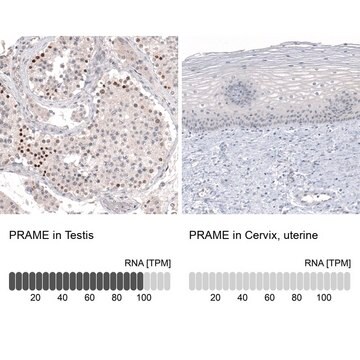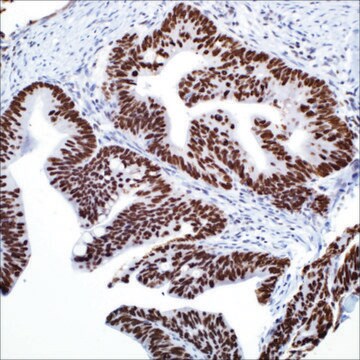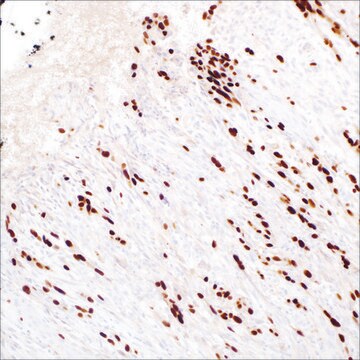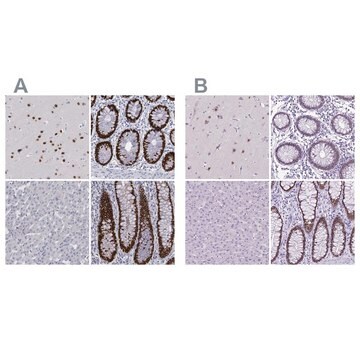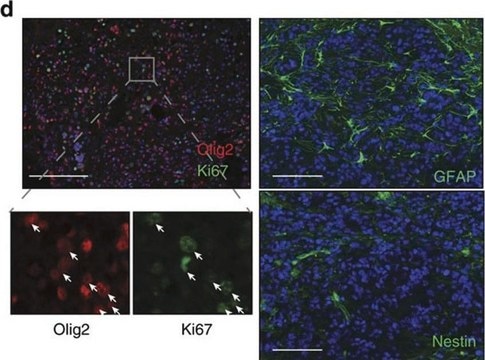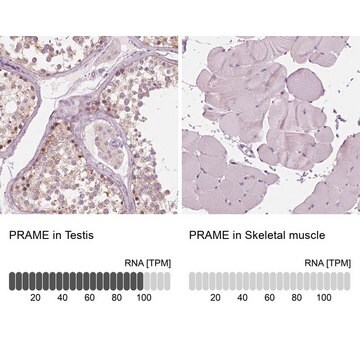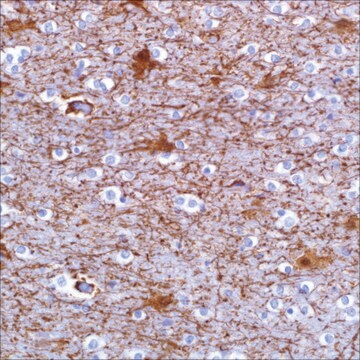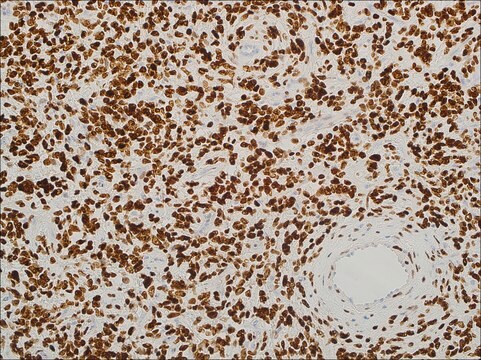484R-1
PRAME (EP461) Rabbit Monoclonal Primary Antibody
Synonym(s):
Preferentially-expressed Antigen in Melanoma
About This Item
Recommended Products
biological source
rabbit
Quality Level
100
500
conjugate
unconjugated
antibody form
culture supernatant
antibody product type
primary antibodies
clone
EP461, monoclonal
description
For In Vitro Diagnostic Use in Select Regions
form
buffered aqueous solution
species reactivity
human
packaging
vial of 0.1 mL concentrate (484R-14)
vial of 0.1 mL concentrate Research Use Only (484R-14-RUO)
vial of 0.5 mL concentrate (484R-15)
vial of 1.0 mL concentrate (484R-16)
vial of 1.0 mL concentrate Research Use Only (484R-16-RUO)
vial of 1.0 mL pre-dilute Research Use Only (484R-17-RUO)
vial of 1.0 mL pre-dilute ready-to-use (484R-17)
vial of 25.0 mL pre-dilute ready-to-use Research Use Only (484R-10-RUO)
vial of 25.0 mL pre-dilute ready-to-use (484R-10)
vial of 7.0 mL pre-dilute ready-to-use (484R-18)
vial of 7.0 mL pre-dilute ready-to-use Research Use Only (484R-18-RUO)
technique(s)
immunohistochemistry (formalin-fixed, paraffin-embedded sections): 1:25-1:50 (concentrated)
isotype
IgG
control
melanoma
shipped in
wet ice
storage temp.
2-8°C
visualization
nuclear
Related Categories
General description
Quality
- United States - IVD
- Canada - RUO
- European Union - IVD
- Japan - RUO
Physical form
Preparation Note
Note: This requires a keycode which can be found on your packaging or product label.
Other Notes
Not finding the right product?
Try our Product Selector Tool.
Storage Class Code
12 - Non Combustible Liquids
WGK
WGK 2
Flash Point(F)
Not applicable
Flash Point(C)
Not applicable
Choose from one of the most recent versions:
Certificates of Analysis (COA)
Sorry, we don't have COAs for this product available online at this time.
If you need assistance, please contact Customer Support.
Already Own This Product?
Find documentation for the products that you have recently purchased in the Document Library.
Our team of scientists has experience in all areas of research including Life Science, Material Science, Chemical Synthesis, Chromatography, Analytical and many others.
Contact Technical Service